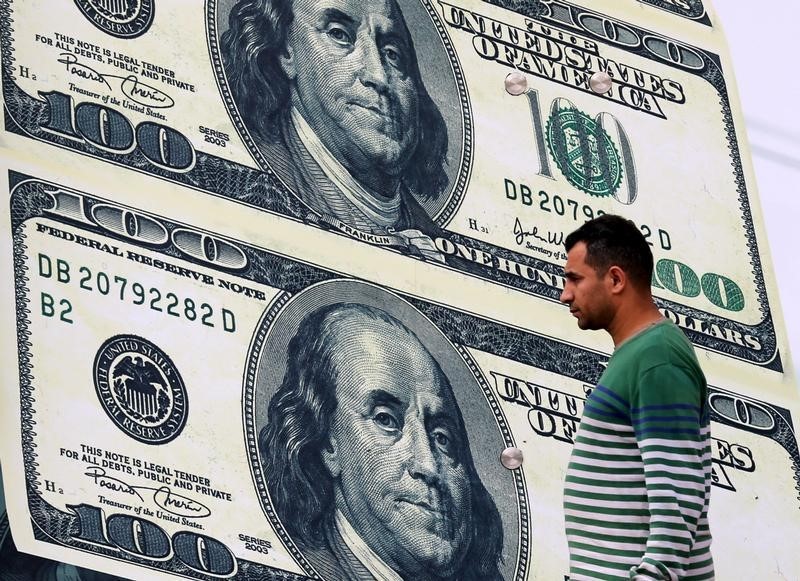By Peter Nurse
Investing.com - The dollar weakened in early European trade Tuesday, giving up some earlier gains, as traders look for a more neutral position ahead of the U.S. presidential election.
At 4 AM ET (0800 GMT), the Dollar Index, which tracks the greenback against a basket of six other currencies, was down 0.2% at 93.915. Additionally, EUR/USD rose 0.2% to 1.1662, while USD/JPY fell 0.1% to 104.56.
The dollar had seen demand over the last few days, climbing to a one-month high on Monday, as traders sought the safety of the greenback anticipating volatility during the election period.
"We have pared back a lot of our positions," said Stuart Oakley, a London-based executive at Nomura, in a Reuters report.
"It's a bit reckless to position ourselves for one outcome of the election... We've positioned ourselves to trade the post (election) volatility."
The dollar has recovered some of its positioning ground over the past few weeks, according to the latest CFTC G10 FX data, said ING, in a research note.
But “a less pronounced net-short positioning ahead of the U.S. vote may suggest that the dollar is somewhat less protected on the downside in the event of a Blue wave (i.e. a Biden landslide victory), which we see as the most negative outcome for the dollar,” ING added.
Despite its recent bounce, the dollar index is still down about 9% from its March highs and on track for its biggest annual fall since 2017.
Elsewhere, AUD/USD traded 0.1% higher at 0.7059, gaining against the greenback despite the Reserve Bank of Australia cutting interest rates and announced a new bond-buying program to try and boost its economy from its Covid-19 hit.
The Reserve Bank of Australia lowered its key interest rate, yield-curve target and bank lending facility rate to 0.10% from 0.25%, and said it would buy A$100 billion of government bonds with maturities of around 5-10 years over the next six months.
GBP/USD climbed 0.2% to 1.2942, showing some strength ahead of Thursday’s Bank of England rate-setting meeting.
Speculation is growing that the central bank will move to support the economy, likely through additional bond purchases rather than negative interest rates, after the U.K. announced over the weekend that it would enter a second national lockdown for a month to stem the surge in Covid-19 infections.
“The domestic driver has so far played second fiddle for GBP, although the recently-imposed one-month full lockdown in the U.K. and the BoE meeting this week may increase selling interest on the pound,” said ING.
Elsewhere, both the ruble and the Turkish lira stabilized after sharp losses in the recent week.
